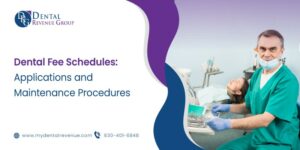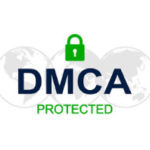It’s simple to say, “no big deal, things happen,” when a dental patient cancels their appointment. And it’s truly the case, and you didn’t force anyone to attend their dental appointment. When a patient does not show up for their appointment, your practice suffers a revenue loss, especially if cancellations are often. It’s not an issue to be taken lightly, so having a system to avoid these cancellations is critical. Dental Patient cancellation and no-shows cost your dental practice money, disrupt schedules, and harm the whole dental team.
Reduced dental patient cancellations and no-shows are critical for the growth of your dental practice. Preparations for a single patient appointment take significant time and effort from the entire dental practice team. On any given day, you could be planning to attend a morning meeting with the dental staff, organize your day around regular appointments, prepare for procedures, and set up the treatment room. It can be exhausting and costly when patients fail to attend consultations.
Dental Patient Cancellations and no-shows cost dental offices thousands of dollars in lost revenue each year. Reducing cancellations and no-shows in your timeline will help your practice reach desired targets and run a cost-effective, thriving dental practice. It’s impossible to avoid cancellations and no-shows completely, but here are a few tips to help you reduce them and keep your practice healthy.
Six Strategies For Reducing Dental Patient Cancellations And No-Shows
Here are the following strategies for reducing dental patient cancellations and no-shows.
Develop And Support Your Team
Every day, your team has dozens of patient encounters. It is natural for some variations in the quality and consistency of their interactions with patients. The hectic front-desk environment of treatment briefings and verifying patients in and out, for example, can easily cause appointment reminders to fall through the cracks. Your front-office staff may become distracted by other tasks and forget to send timely reminders.
- Examine the most common causes of why patients cancel appointments.
- Examine any internal or external factors causing patient apathy toward dentistry, such as treatment plans, discomforts, financial strains, etc.
- Regularly review your appointment protocols with your team during staff meetings and morning huddles.
- Consider ways to mitigate and improve the factors influencing patient behavior during appointments.
Determine Patient’s Ideal Method Of Communication
When you first schedule a patient’s appointment and gather their insurance details, you should ask them which type of communication they prefer:
- Message sent via text
- Telephone call
- Calendar invite
You can then tell them that you will verify their appointment based on how far out they are planned a few times through their ideal form of communication. They will not forget the verification this way. Some people do not review their email every day, and if they are like me, they may not answer phone calls from unknown numbers. Kindly ask that they respond to your verification requests promptly. Many confirmation software programs will request a “yes” or “no” confirmation.
Communicate The Importance And Benefits Of The Appointment
When discussing treatment options with patients, it is beneficial to personalize the message so that patients understand that you are involved in their oral and overall health, and they should be as well. By emphasizing the benefits of maintaining good oral health, you assist patients in comprehending that it is not just about keeping an appointment but also about their health.
Here are some ideas to help patients connect their appointment to the advantages they can expect, and reduced dental patient cancellation rate for the practice.
- Please keep track of patient notes about their health objectives, upcoming events, and other pertinent personal information.
- Examine each patient’s notes before confirming their appointment.
- Personalize your language to include relevant data, the benefits they will obtain from their appointment, and the importance of treatment completion.
- If a patient’s call to postpone, give them options. Inquire whether it is the day or the duration. Use open/available time blocks to get them – rescheduled right away.
- Follow up with a no-show patient right away. Try your best to reschedule them.
- Set up procedures that allow patients to cancel appointments with more advanced notice.
Identify Patients Who Are More Likely To Be Cancelled
Some patients are more likely to cancel or fail to appear for appointments. You can determine risk variables for your patient population and practice. For example, patients with one type of insurance may cancel at your practice, or patients who book too far ahead on the schedule may not arrive because they forgot about their appointment.
Make efforts to reduce the likelihood of a cancellation or no-show by implementing strategies in an instant, such as scheduling a patient as soon as possible or putting patients at an increased risk of cancellation in specific schedule slots to decrease the practice’s negative effect if they do not show.
Estimate The Amount Of Time You Have Set Aside For Patients
Predicting how long a dental process will take can feel impossible, but even an estimate can benefit patients.
For example, I changed dental providers a few months ago, and they wanted to do a comprehensive exam on my first visit. The exam could take up to two hours, according to my follow-up phone call and text message confirmation. As an adult trying to get things done daily, that’s a lot of time to set aside for an appointment! But that made it simple to select a day that would perform great for me. With all of this information, I had no reason to cancel. It is an estimate, and as long as that is mentioned, your patient will be ready to block out the time required to complete the process.
Follow Up After No-Shows
Since the treatment has finished, most patients will miss their follow-up appointments. They may forget to follow up or be too lazy to do so. Explain why the follow-up is necessary; patients may be less likely to miss follow-up appointments if they understand its importance. If a client fails to appear for an appointment, call them 15 minutes after their scheduled time. They may have been delayed because of work or traffic, or they may have forgotten to reschedule. If an opening becomes available after a few days, you can reschedule the appointment for later that day.
Conclusion
Dental Patient Cancellations and no-shows are stressful but also costly to the practice. By creating appointment scheduling simple, sending out effective reminders, and making missed appointment regulations clear, your office will assist more patients to turn up for meetings and improve your bottom line.
Put these six secrets into action if you desperately need to reduce no-shows and cancellations. You’ll be well on your direction to more effective practice with a system already in place and appropriate training. You’ll also experience less stress, which is always beneficial to business.
It is critical to prevent patient cancellations to avoid losing substantial revenue. You can help reduce practice overhead, maintain your patient’s dental health, and boost your revenues by implementing efficient patient communication skills, confirming appointments multiple times, having systems in place for rescheduling, and automating your verifications. It will also assist your practice in maintaining a smooth billing process. If patients continuously cancel, your day is thrown off, and your expected revenue is no longer coming in.
When dealing with patient cancellations, it’s critical to keep them happy. Make an effort to be understanding and proactive rather than reactive. Visit our website to learn more about how outsourcing your dental billing can improve the patient experience.
Check our more recent blogs here.











